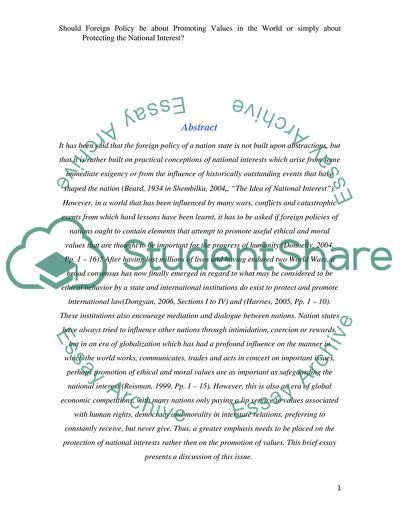Cite this document
(“Should foreign policy be about promoting values in the world or simply Essay”, n.d.)
Retrieved from https://studentshare.org/miscellaneous/1538488-should-foreign-policy-be-about-promoting-values-in-the-world-or-simply-about-protecting-the-national-interest
Retrieved from https://studentshare.org/miscellaneous/1538488-should-foreign-policy-be-about-promoting-values-in-the-world-or-simply-about-protecting-the-national-interest
(Should Foreign Policy Be about Promoting Values in the World or Simply Essay)
https://studentshare.org/miscellaneous/1538488-should-foreign-policy-be-about-promoting-values-in-the-world-or-simply-about-protecting-the-national-interest.
https://studentshare.org/miscellaneous/1538488-should-foreign-policy-be-about-promoting-values-in-the-world-or-simply-about-protecting-the-national-interest.
“Should Foreign Policy Be about Promoting Values in the World or Simply Essay”, n.d. https://studentshare.org/miscellaneous/1538488-should-foreign-policy-be-about-promoting-values-in-the-world-or-simply-about-protecting-the-national-interest.


